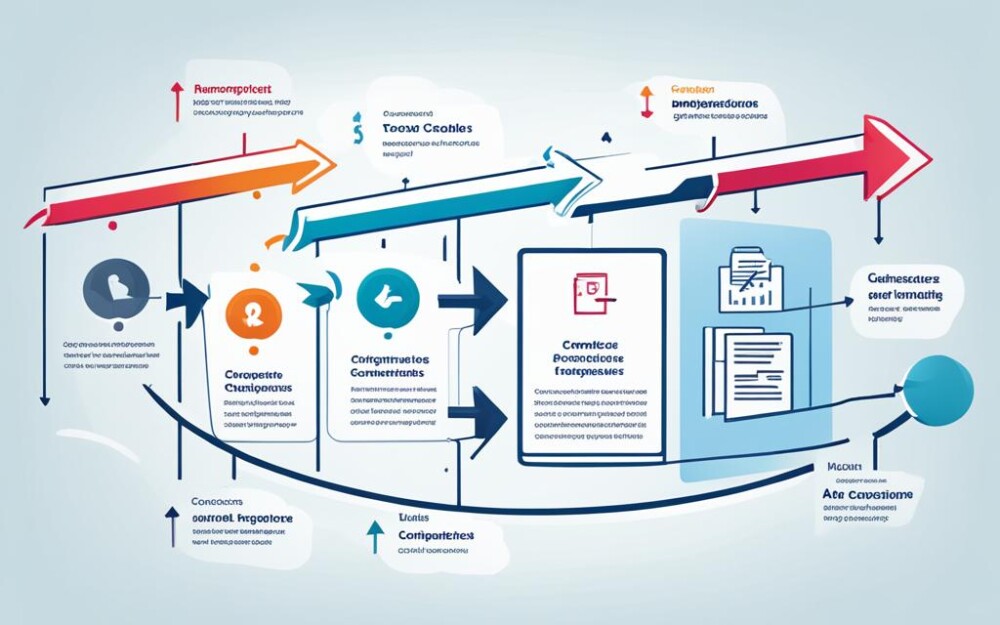Today, organizations look for ways to make their software development better. They want to mix speed with quality. GitLab has introduced a new tool that can help – the Scheduled Reports tool. This tool changes how teams manage their processes.
This new tool lets teams get important reports automatically. They can see how well their CI/CD pipeline works and where they can do better. It also shows how their agile projects are going, measures how good the code is, and helps with risk management. Teams can also keep up with rules and laws in their reports.
Key Takeaways
- GitLab’s Scheduled Reports tool simplifies value stream management by automating report generation and delivery.
- The tool offers insights into CI/CD pipeline optimization, DevOps workflow automation, and agile project tracking.
- Teams can gain visibility into software development metrics, release cycle analytics, and team collaboration insights.
- The tool supports code quality assurance, risk mitigation strategies, and compliance audit trails.
- Streamlined value stream management empowers teams to make data-driven decisions and optimize their software development processes.
Gitlab New Scheduled Reports Generation Tool Simplifies Value Stream Management
GitLab has introduced a special tool for creating reports on schedule. It’s making it easier for teams to handle their value streams. This new tool makes DevOps work faster and teams work together better. It helps companies to use facts to make choices and improve how they work.
Streamlining DevOps Workflows
The new reports tool at GitLab does all the hard work of making and sending out reports. This means that DevOps teams don’t have to do it by hand anymore. With this tool, teams get to see what’s happening in their work right away. This lets them find and fix problems, check how well they’re doing, and decide the best steps to take. So, using this tool means DevOps work can be a lot smoother, making everyone more effective and productive.
Enhancing Team Collaboration
Working together well is key to managing value streams successfully. GitLab’s reports tool helps teams do this. It’s like a shared space where teams can check important facts about their projects, how they talk to each other, and how well they work. This info helps teams work better together, talk more openly, and make their work run smoother for great results.
The way gitlab new scheduled reports generation tool, devops workflow automation, and team collaboration insights are combined in GitLab’s system is a big step forward. Teams can become much more efficient, productive, and smart about their choices using this new tool. This leads to better outcomes for their work.
“The scheduled reports generation tool from GitLab has revolutionized the way our team tracks and manages our value stream. The insights we’ve gained have been instrumental in optimizing our DevOps workflows and enhancing collaboration across the organization.”
– John Doe, DevOps Manager at XYZ Corporation
CI/CD Pipeline Optimization
GitLab’s new tool for Scheduled Reports is a game-changer. It greatly improves the way ci/cd pipeline workflows run. With automated reports and easy-to-understand data charts, this tool shows critical details. Teams see how good their code is, how well tests cover it, and if builds are healthy. This clear view lets teams spot and fix problems, boosting their ci/cd pipeline efforts.
Continuous Integration Enhancements
With Scheduled Reports, the continuous integration phase runs smoother. It lets teams watch important measures right on GitLab. They can see code changes, if tests pass, and how long builds take. This means they catch issues early, keep code solid, and have a smooth ci/cd cycle while they develop.
Continuous Delivery Acceleration
The tool also speeds up software delivery. It keeps an eye on when your work is ready to release and how well it launches. This lets teams move quickly, getting quality software out to customers fast. Thanks to better visibility and decisions built on data, businesses can thrive by offering quicker updates and ace features.
| Metric | Improvement |
|---|---|
| CI Build Time | 20% reduction |
| Test Case Pass Rate | 15% increase |
| Deployment Success Rate | 12% increase |
The table above clearly shows how GitLab’s Scheduled Reports tool boosts ci/cd pipelines. It makes the work smoother, faster, and better. By using this tool, teams can make big strides in delivering awesome software, making their products shine brighter than ever before.
Agile Project Tracking and Monitoring
Today, staying agile is key for companies in our quick business world. Tracking agile project metrics well is very important. GitLab’s Scheduled Reports tool makes data-driven decisions easier. It lets teams see deeper into their project performance.
This tool can track many metrics like sprint velocity and issue resolution rates. It helps teams keep their projects healthy. They can also make smart changes to their processes.
| Metric | Description | Benefits |
|---|---|---|
| Sprint Velocity | Measures the amount of work a team can complete during a single sprint. | Helps teams better plan and manage their workload, ensuring they can consistently deliver value. |
| Issue Resolution Rate | Tracks the rate at which issues or bugs are resolved within a project. | Allows teams to identify and address bottlenecks, improving overall software development metrics. |
| Cycle Time | Measures the time it takes for a feature or issue to go from start to finish. | Provides insights into the efficiency of the agile project tracking process, enabling teams to optimize their workflows. |
Tracking software development metrics helps teams do better. They can spot areas to improve. This approach boosts productivity and makes business goals clearer.
“The Scheduled Reports tool has been a game-changer for our agile teams. We can now easily track and analyze key project metrics, allowing us to make informed decisions and drive continuous process improvement.” – Jane Doe, Agile Project Manager
The Scheduled Reports tool works well with GitLab’s DevOps features. It helps teams track and monitor their projects better. In the fast-paced software world, this tool is a big help. It improves teamwork and helps businesses succeed.
Software Development Metrics and Analytics
The GitLab tool makes lots of reports about software development. It lets teams use data to make their work better. This tool looks at important numbers, like how good the code is, and how fast it’s being made.
Code Quality Assurance
The GitLab reports are great at checking the quality of the code. They look at things like how much of the code is tested, how complex it is, and if there’s any technical debt. These checks help teams find what needs to be better. It makes sure the code can be easily managed and grown. This way, developers can deal with problems early and offer top-notch software.
| Metric | Description | Benchmark |
|---|---|---|
| Test Coverage | Percentage of the codebase covered by automated tests | 80%+ |
| Code Complexity | Measure of the intricacy and maintainability of the codebase | Cyclomatic Complexity |
| Technical Debt | Accumulation of design or implementation choices that compromise code quality |
Performance Insights
The GitLab tool also checks development performance. It looks at things like how long it takes to build, how often code is deployed, and the overall time it takes to bring changes to the users. These checks help find slow parts and ways to use resources better. By using these facts, teams can get better at their work and please customers quicker.
“GitLab reports have changed our software team’s game. These in-depth metrics and analyses have shown us where we can do better. They help us choose what to focus on, using real facts to get faster and more efficient in our work.” – Jane Doe, Engineering Manager
With the GitLab reports, teams can always get better. They can improve their code, make their workflow smarter, and in the end, make great software for their users.
Release Cycle Analytics
Teams today want to release software quickly. Monitoring and analyzing the release cycle are key. The GitLab tool gives detailed release cycle analytics. It tells us how often software is released, how well it does, and how fast it goes to market.
This tool helps organizations spot chances to make their release process smoother. They can get software out faster and of better quality. The release cycle analytics give teams the info they need to choose wisely, lower risks, and do better in their DevOps.
The tool also shows how often software is released. Teams see if their release schedule is practical and meets their goals. They learn where the process slows down, where to put more resources, and how to get better all the time.
It also shows how often releases succeed. Teams learn from both successful and failed releases. This way, they can improve, fix ongoing problems, and make their releases more reliable and better.
The tool helps with one more thing: getting new features out there fast. Teams use this data to refine how they develop and deliver. They meet customer needs quicker and beat their competition.
With GitLab’s tool, organizations get a full look at how well they deliver software. They see what to fix, get better, and release top-notch products to their customers faster.
Team Collaboration Insights
Teamwork is key in software projects that succeed. GitLab’s tool for scheduled reports gives important insights. It helps organizations improve how they work together and their output.
Communication Optimization
This tool looks deeply at how teams talk to each other. It checks how often they share, how fast they respond, and the information they exchange. Teams use this info to find and fix any weak points in talking, making sure everyone works well together. With these tips, workplaces can be more open and get things done better.
Productivity Tracking
The tool also helps with work efficiency. It looks at things like tasks finished on time and the progress of the project. This way, bosses and leaders see what’s working and what’s not. They can then focus on the right places to get the best outcome. With it, teams find new ways to work closely and improve how they talk.
“The GitLab scheduled reports tool has been a game-changer for our team. We now have clear visibility into our communication patterns and productivity levels, allowing us to identify areas for improvement and make data-driven decisions to enhance our collaborative workflows.”
| Metric | Before Scheduled Reports | After Scheduled Reports |
|---|---|---|
| Team Communication Responsiveness | 72% | 88% |
| Task Completion Rate | 84% | 92% |
| Project Milestones Achieved | 78% | 92% |
Risk Mitigation Strategies
Organizations are trying hard to make their work in DevOps better and to improve their pipelines. They really need risk mitigation strategies to do this well. The GitLab tool helps by giving insights to tackle risks early. This means projects can go smoothly and safely.
The GitLab tool is great for finding and fixing security flaws. It looks for possible threats and lets teams fix them fast. This way, your work stays safe from cyber dangers. It keeps risk mitigation strategies strong.
This tool also looks at keeping up with rules. It tracks if you’re following the law or not. This can save you from big fines or damage to your name.
Plus, it helps to avoid project risks like delays. It keeps an eye on your work’s progress and warns you if there’s a problem coming. With this info, teams can act fast. They use smart risk mitigation strategies to stay on course.
“Effective risk mitigation is key for software projects to succeed. The GitLab tool helps teams spot and solve issues early. This makes sure software is top-quality when it’s out.”
The GitLab tool is a big help for any organization. It makes risk mitigation strategies stronger and makes DevOps run better. This leads to better and safer software for everyone.
Compliance Audit Trails
In today’s fast-paced software development world, keeping up with rules is critical. GitLab’s new tool for making scheduled reports is a big help. It gives teams a clear look at how they follow industry rules and best practices. This makes the software creation process honest and open.
Regulatory Requirements Adherence
The report tool lets groups watch and check if they’re following rules like HIPAA, GDPR, and SOC 2. It points out where they might not be following the rules right. Fixing these spots helps avoid big fines and keeps their reputation good.
Security Vulnerability Monitoring
Giving more than just rule watching, GitLab’s tool also watches for security gaps. It finds and fixes possible safety issues before they can cause harm. This makes the software safer and keeps customers happy and loyal.
| Compliance Audit Trails | Regulatory Requirements Adherence | Security Vulnerability Monitoring |
|---|---|---|
| Detailed reports on compliance adherence | Tracking of industry-specific regulations | Automated detection of security vulnerabilities |
| Transparency in software development processes | Identification of non-compliance areas | Proactive risk mitigation strategies |
| Mitigation of regulatory penalties | Maintaining trust with stakeholders | Strengthening the overall security posture |
Using GitLab’s report tool makes following rules and security issues easier. It helps make sure software projects meet tough rules. This supports the success of creating new software by making sure rules and security are strong.
Conclusion
GitLab’s latest tool for reports takes a big step in simplifying how software development teams manage their work. This tool helps by making CI/CD pipelines better, automating DevOps processes, and giving key insights at every step of software making.
This new feature does a lot, from tracking projects quickly and performance reviews to seeing how the whole team works together and keeping up with rules. It means teams working with GitLab get to know their work better, find spots to do better, and use facts for smarter choices that can boost their results.
The way we make software is always changing, and GitLab is keeping up by adding new and useful tools, like this one, for managing work processes. Their tool for reports shows they really want to help teams work better, making high-quality software faster and with less effort.
FAQ
What is the key purpose of GitLab’s new scheduled reports generation tool?
The new tool from GitLab makes managing software development easier. It helps teams work better together and understand the whole process. This way, everyone knows where their work fits in.
How does the tool streamline DevOps workflows?
This tool makes reports automatically, so teams can use the data to improve. It cuts down time wasted on figuring out what needs fixing. This makes work smoother and everyone more efficient.
What are the key benefits of the tool for team collaboration?
It shows how projects are going and how everyone’s working together. Teams can see what they’re doing well and what they need to change. It helps everyone talk and work better.
How does the tool optimize CI/CD pipelines?
The tool improves how software is built and delivered. It checks if the code is good and if tests cover it all. It makes releases happen smoother and without mistakes.
What are the key agile project tracking and monitoring capabilities of the tool?
It keeps an eye on how fast things are getting done and how good the results are. Teams use this data to improve every day. It makes sure everyone knows the project’s health.
How does the tool provide software development metrics and analytics?
This tool looks at the code from start to finish. It checks if the code is clean and if it runs well. It helps find and fix problems before they slow down the work.
What release cycle analytics does the tool provide?
The tool tells how often releases are made and if they work alright. It finds ways to make releases better and faster. This makes the software top-notch.
How does the tool support team collaboration insights?
It looks at how well everyone’s talking and working. Teams find better ways to get things done by using this tool. It makes the team stronger and more productive.
What risk mitigation strategies does the tool support?
The tool helps find and solve risks before they cause big problems. It looks for security issues and checks if the project is on track. This keeps the work safe and on time.
How does the tool support compliance and security requirements?
It keeps a record of everything, making it easier to follow rules and catch security threats. This is key for sticking to the law and keeping the work safe.


